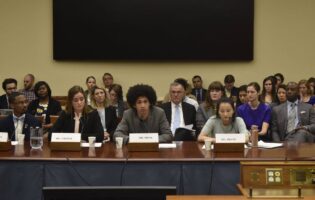
Islamist Terrorism in Germany: Threats, Responses, and the Need for a Strategy

Guido Steinberg
German Institute for International and Security Affairs
Dr. Guido Steinberg was a DAAD/AICGS Research Fellow at AICGS in Fall 2017.
In Germany, Guido Steinberg works for at the German Institute for International and Security Affairs (Stiftung Wissenschaft und Politik, SWP) in Berlin. An Islamicist by training, he has worked as a research coordinator at the Free University of Berlin and an advisor on international terrorism in the German Federal Chancellery (2002-2005).
Since 2006, he has served as an objective expert witness in all major trials against Islamist terrorists in Germany, and has also testified in Austria, Denmark, the Czech Republic, and the United States. He regularly comments on Middle East affairs and terrorism on German and international media, most frequently on Deutsche Welle TV in German, English, Arabic, and Spanish.
In his academic work, Guido Steinberg focusses on Saudi Arabian and Gulf history and politics, Islamism and Salafism as well as Islamist Terrorism. He has published widely on these topics, including: German Jihad. The Internationalization of Jihadist Terrorism (New York: Columbia University Press, 2013).
At AICGS, he will work on the research project “Countering the Islamic State: German and U.S. Policy Options.” He will give an overview of the threat posed by Islamist terrorists to Germany, analyze the measures invoked by the German government and its allies to counter the threat, and offer his views on additional efforts to improve the effectiveness of counter-terrorism on both sides of the Atlantic.
Policy Report 66
One year after Germany’s largest jihadist terrorist attack, and only two years after Angela Merkel’s decision to open the country’s borders to nearly a million refugees and asylum-seekers, German policymakers are still struggling with how to maintain security and privacy within a federal system. It is part of a broader discussion of identity, values, and pragmatism that dominated the 2017 federal elections and continues to make waves throughout society.
This Policy Report examines the nature and the scope of the terrorist threat in Germany, a country whose Muslim population does not share the same characteristics as that in France or Great Britain, and how terrorist organizations sought to engage German Muslims in their cause. It discusses how the refugee crisis made the flow of terrorists from the Middle East to Germany easier, and how terrorists appealed to refugees fleeing to Europe to take up their fight. Finally, it looks at government responses to terrorism, identifying where new strategies are needed and where transatlantic cooperation is necessary. In the end, the author identifies five elements that will allow the German government to overhaul its domestic security and counterterrorism efforts: limit refugee numbers, centralize the security architecture, improve border controls, strengthen intelligence, and carry the fight to the enemy.









